

With these books in your Zoom background, you’ll look like an intellectual
An ancient Chinese treatise. A touch of entrepreneurial success. Some Stephen Hawking. These are the texts you need to impress…
Words: Jonathan Wells
Remember when ‘zoom’ was a just verb? Wasn’t that nice? It’s a shame those days are gone. Today, ‘zoom’ has become synonymous with ‘meeting’ — with thousands of us logging on and virtually chatting every single day. We’ve seen more of each other’s homes that we ever wanted to. We’ve glimpsed pyjamas, picked out pets and witnessed the worst unbrushed bed hair to ever grace a webcam. But what we’ve really seen — sat and studied — are each other’s bookcases.
Some are chocked with classics, from Anna Karenina to Dacre’s Zofloya. Some are brimming with reference books; more almanacs and atlases than you can shake an encyclopaedia at. And some are excruciatingly bare, lacking plants, photographs or decoration of any kind. But we’ve learnt from these sub-par shelves — and have carefully crafted our own book collections to create the illusion of intellect. For you to do the same, it’ll take only these eight books below…
Sapiens: A Brief History of Humankind, by Yuval Noah Harari
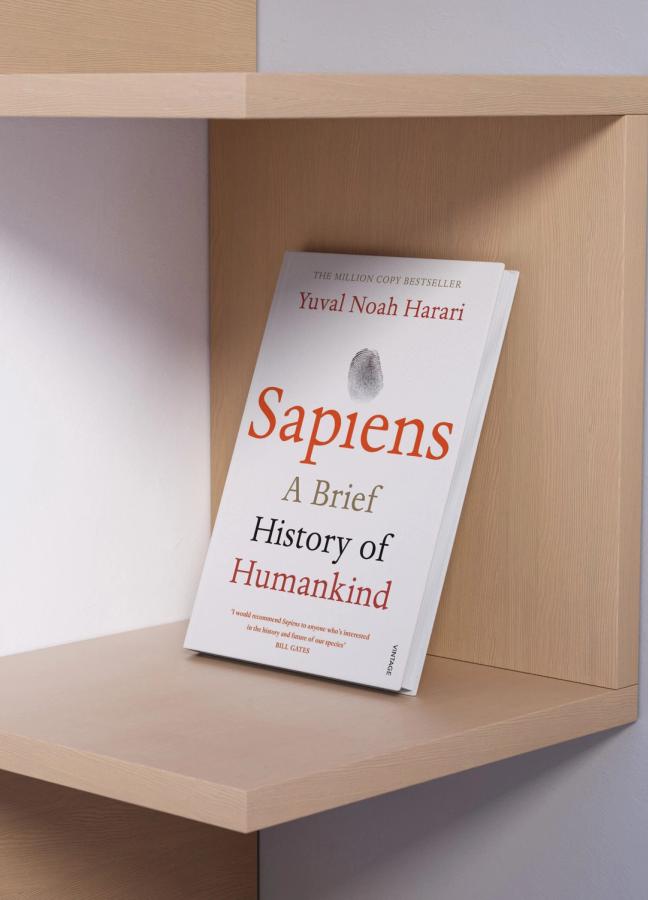
In a nutshell: It really is just that; a brief (443 pages) history of homo sapiens — from our ancient cousins in the Stone Age to the Scientific Revolution from which technology and programs like Zoom were born.
Key quote: “You could never convince a monkey to give you a banana by promising him limitless bananas after death in monkey heaven.”
Where to put it: Near a globe, probably. If the title alone doesn’t drive home the point that you’re worldly, the big spinny Earth should do the job.
The Power of Habit, by Charles Duhigg
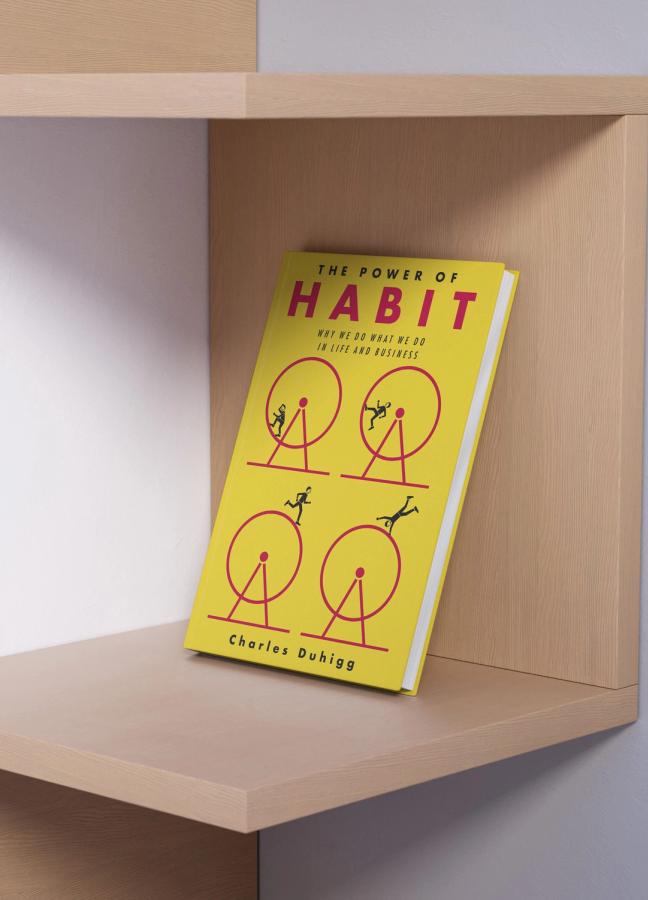
In a nutshell: Written a decade ago, this is a deep dive into the science behind routine and habits. Why do we form habits? How do we maintain them? What does our endless cycle of Zoom calls say about us?
Key quote: “Champions don’t do extraordinary things. They do ordinary things, but they do them without thinking, too fast for the other team to react. They follow the habits they’ve learned.”
Where to put it: Is next to a clock or calendar too on-the-nose? Who cares. We’re all deep in the repetitive, habitual cycle of Zoom, Zoom, Zoom anyway. May as well acknowledge it.
The Art of War, by Sun Tzu

In a nutshell: Written a little longer than a decade ago, ‘The Art of War‘ is an ancient military treatise from China. It’s remained surprisingly relevant to modern life, however — with salient passages on intelligence, strategy and perseverance.
Key quote: “Appear weak when you are strong, and strong when you are weak.”
Where to put it: If you’re lacking on the antique, ceremonial sword front (you can never have enough), we’d recommend popping a letter opener on top of it. A home office essential — but also a sharp reminder that you’re one Chinese proverb away from staging a hostile takeover.
The GCHQ Puzzle Book, published by Michael Joseph
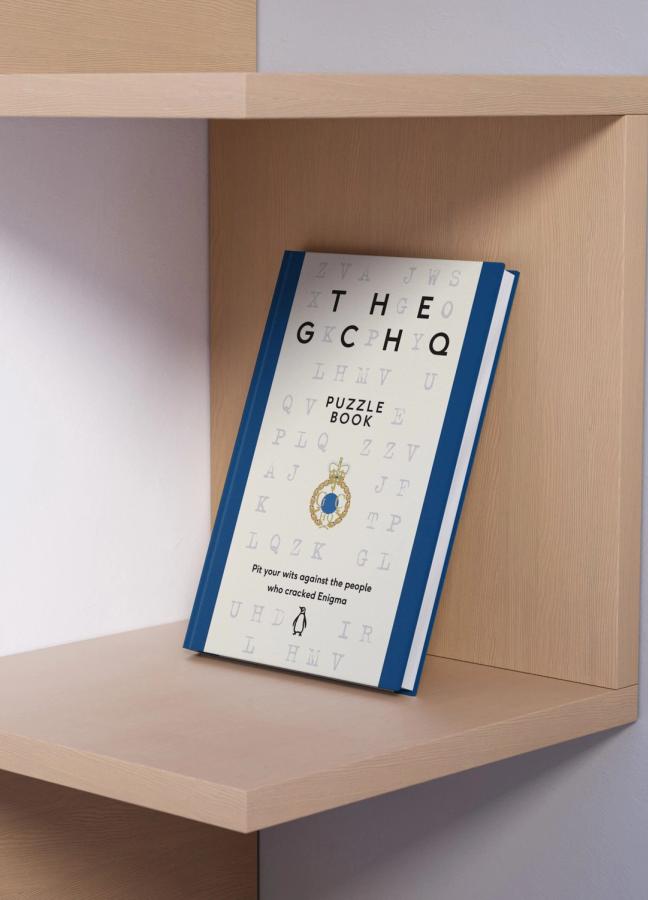
In a nutshell: This isn’t your grandfather’s Sudoku book. Rather, it’s a puzzle compendium put together by the organisation that made the Bletchley Park breakthroughs — quizzes, bewilderments and brainteasers to challenge even the sharpest of minds.
Key quote: “Which of the following words is the odd one out: CHAT, COMMENT, ELF, MANGER, PAIN, POUR?”
Where to put it: Within arm’s reach. If your call hits a snag, hit everyone with a riddle instead. (If you’re looking for a clue for the above, don’t think in English…)
A Brief History of Time, by Stephen Hawking
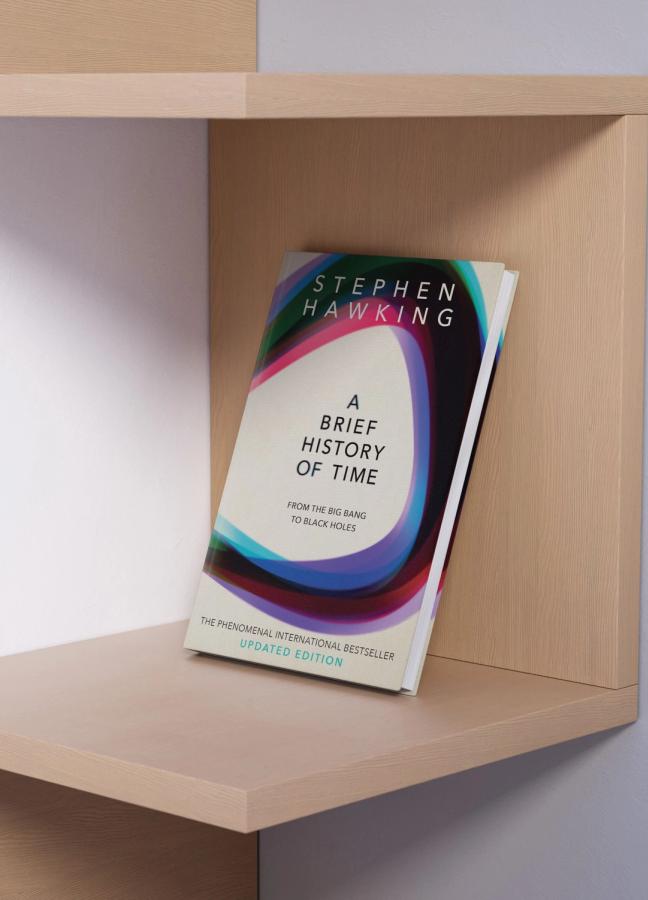
In a nutshell: You’ve heard of it, of course. The British physicist’s theoretical book on astronomy is up there with Darwin’s ‘On the Origin of Species’. But it’s about space and the cosmos, so it’s just that little bit sexier.
Key quote: “There could be whole antiworlds and antipeople made out of antiparticles. However, if you meet your antiself, don’t shake hands! You would both vanish in a great flash of light.”
Where to put it: Easy. Next to your DVD of The Theory of Everything.
Thinking, Fast and Slow, by Daniel Kahneman
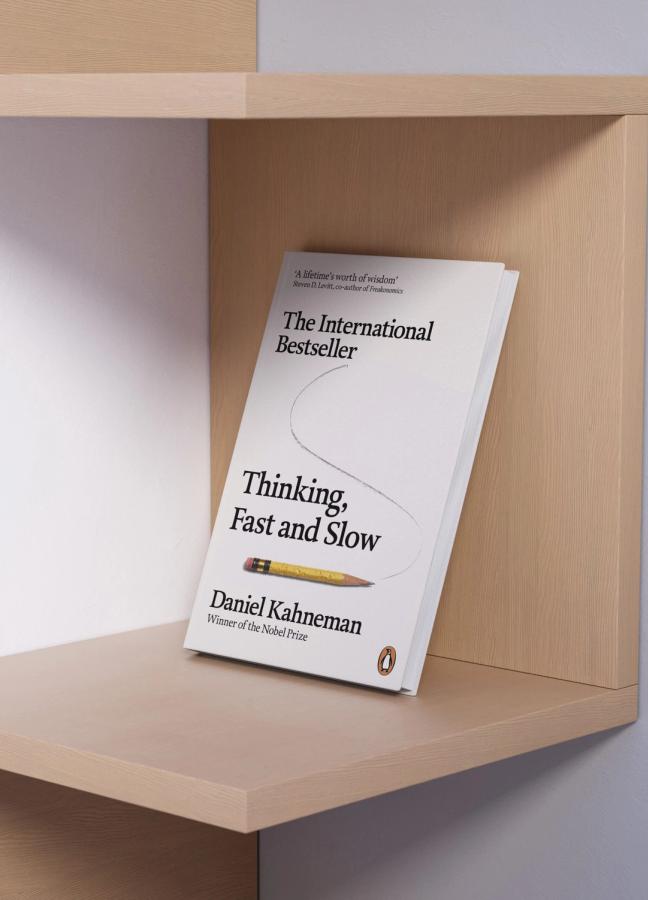
In a nutshell: It’s a lifetime’s worth of wisdom from Nobel award for Economics winner Daniel Kahneman, studying how the human mind thinks in two distinct ways: instinctively and emotional vs. deliberative and logical.
Key quote: “A reliable way to make people believe in falsehoods is frequent repetition, because familiarity is not easily distinguished from truth. Authoritarian institutions and marketers have always known this fact.”
Where to put it: Front and centre. If you’re only buying every other book on this list to appear smarter than your co-callers, this book will actually give you an insight into what they’re thinking.
The Story of Philosophy, by Will Durant
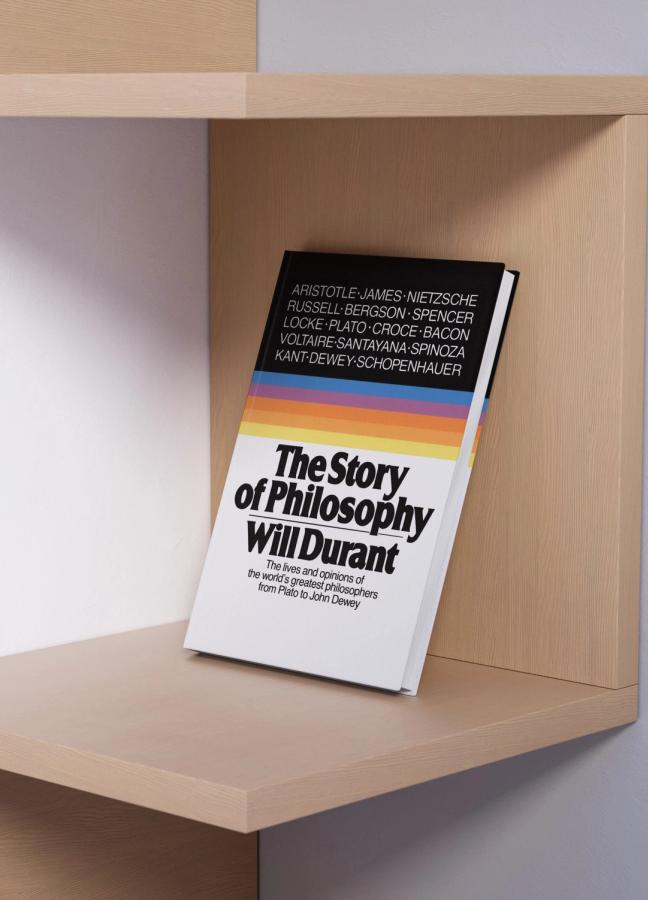
In a nutshell: First published in 1926, Will Durant’s magnum opus profiles several prominent philosophers and critiques their theories and ideas. We start with Socrates and Plato, before working our way up to Nietzsche.
Key quote: “Science tells us how to heal and how to kill; it reduces the death rate in retail and then kills us wholesale in war; but only wisdom—desire coordinated in the light of all experience—can tell us when to heal and when to kill.”
Where to put it: Stand it next to the oldest bottle of scotch you can find, or use it as the backdrop of your drinks nook. Why? Because you’ll only quote this when you’re six drams down and trying to solve the mysteries of the universe.
Outliers: The Story of Success, by Malcolm Gladwell
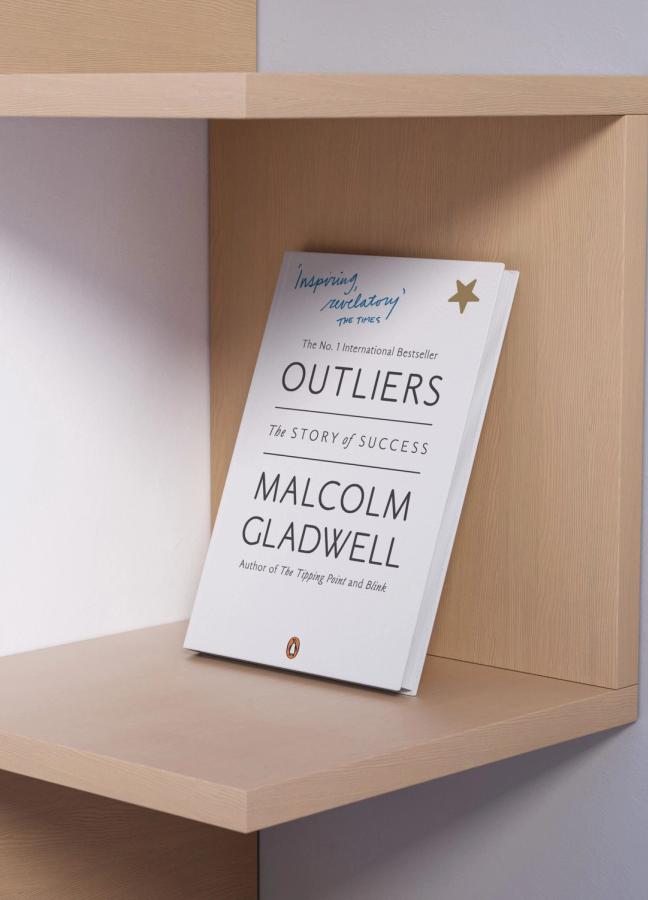
In a nutshell: Using case studies from hockey players to law firms — Bill Gates to The Beatles, Gladwell examines the many strange and seemingly unconnected factors that lead to success.
Key quote: “If you work hard enough and assert yourself, and use your mind and imagination, you can shape the world to your desires.”
Where to put it: Did you hang onto your childhood swimming certificates? Or the medal for that 10K you ran a couple of summers ago? If not, find your most treasured trophy, award or prize — and stand ‘Outliers’ by that. Your co-workers will never questions your abilities again.
Looking for more page-turners? These were the best books of 2020…
Become a Gentleman’s Journal member. Find out more here.


